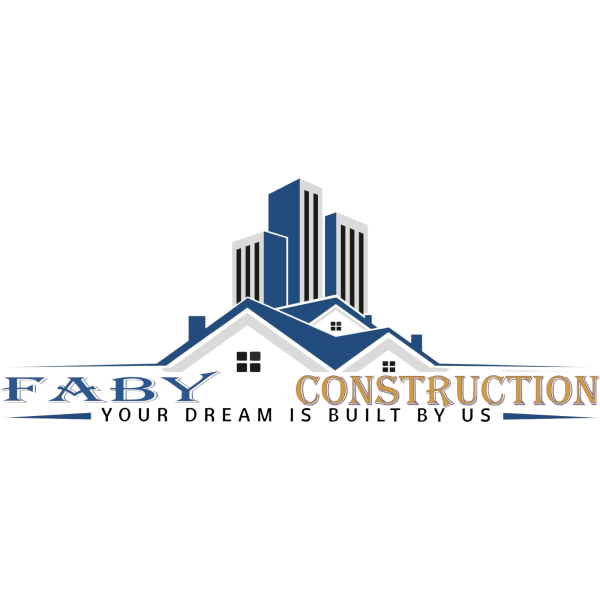Garage Conversions in Wantage
Search Garage Conversions in places nearby
Understanding Garage Conversions in Wantage
Garage conversions in Wantage have become increasingly popular as homeowners seek to maximise their living space without the hassle of moving. By transforming an underutilised garage into a functional room, residents can enhance their property's value and utility. Whether it's an extra bedroom, a home office, or a playroom, the possibilities are endless. This article explores the ins and outs of garage conversions, offering insights into planning, design, and execution.
The Benefits of Garage Conversions
Garage conversions offer numerous advantages. Firstly, they provide additional living space without the need for an extension, which can be costly and time-consuming. Secondly, they can significantly increase the value of your home. In Wantage, where property prices are on the rise, a well-executed conversion can offer a substantial return on investment. Moreover, converting a garage can improve the energy efficiency of your home by better insulating the space.
Cost-Effectiveness
Compared to building an extension, garage conversions are often more cost-effective. The basic structure is already in place, which reduces construction costs. Additionally, planning permissions are typically simpler to obtain, saving both time and money. This makes garage conversions an attractive option for homeowners looking to expand their living space on a budget.
Increased Property Value
Adding a new room to your home can significantly boost its market value. In Wantage, where space is at a premium, a garage conversion can make your property more appealing to potential buyers. This is particularly true if the conversion adds a functional space, such as an extra bedroom or a home office, which are highly sought after in today's market.
Planning Your Garage Conversion
Before embarking on a garage conversion, careful planning is essential. This involves considering the intended use of the space, the structural integrity of the garage, and any necessary permissions. Engaging with professionals, such as architects or builders, can help ensure that your project is feasible and compliant with local regulations.
Determining the Purpose
The first step in planning a garage conversion is deciding how you will use the space. Common options include a guest bedroom, a home office, or a playroom. Each choice will have different requirements in terms of layout, lighting, and utilities. It's important to consider your family's needs and how the new space will fit into your lifestyle.
Structural Considerations
Assessing the structural integrity of your garage is crucial. This includes checking the foundation, walls, and roof for any signs of damage or wear. You may need to reinforce certain areas or make repairs before proceeding with the conversion. Consulting with a structural engineer can provide valuable insights and ensure the safety of your project.
Obtaining Permissions
In Wantage, most garage conversions fall under permitted development rights, meaning you won't need full planning permission. However, it's still important to check with your local council to ensure compliance with building regulations. This may include considerations for insulation, ventilation, and fire safety.
Designing Your New Space
Once the planning phase is complete, it's time to focus on the design of your new space. This involves selecting materials, choosing a layout, and incorporating features that enhance functionality and aesthetics. A well-designed conversion can seamlessly integrate with the rest of your home, providing a cohesive and inviting environment.
Choosing Materials
When selecting materials for your garage conversion, consider durability, aesthetics, and cost. For flooring, options like laminate or engineered wood offer a balance of style and practicality. Insulation is another key consideration, as it will impact the comfort and energy efficiency of the space. Opt for high-quality insulation materials to ensure a comfortable environment year-round.
Layout and Functionality
The layout of your converted space should reflect its intended use. For example, a home office might require built-in shelving and ample desk space, while a playroom could benefit from open areas for activities. Consider how the layout will affect the flow of the room and ensure that it meets your functional needs.
Lighting and Ambiance
Lighting plays a crucial role in the ambiance of your new space. Natural light is ideal, so consider adding windows or skylights if possible. For artificial lighting, a combination of overhead lights and task lighting can create a warm and inviting atmosphere. Choose fixtures that complement the overall design and purpose of the room.
Executing the Conversion
With a solid plan and design in place, the next step is executing the conversion. This involves coordinating with contractors, managing timelines, and ensuring quality workmanship. Effective project management is key to a successful conversion, helping to avoid delays and stay within budget.
Hiring Professionals
While some homeowners may choose to undertake a garage conversion as a DIY project, hiring professionals can ensure a higher standard of work. Experienced builders and contractors bring expertise and efficiency, helping to navigate any challenges that arise during the conversion process.
Project Management
Managing a garage conversion project requires careful coordination of various tasks and timelines. Establish a clear schedule and communicate regularly with your contractors to ensure that the project stays on track. Regular site visits can help monitor progress and address any issues promptly.
Quality Assurance
Ensuring quality workmanship is essential for a successful conversion. This involves regular inspections and adherence to building codes and standards. Don't hesitate to ask questions or request changes if something doesn't meet your expectations. A well-executed conversion will provide lasting value and enjoyment.
Common Challenges and Solutions
Like any home improvement project, garage conversions can present challenges. These may include budget constraints, design limitations, or unexpected structural issues. By anticipating potential obstacles and planning accordingly, you can minimise disruptions and achieve a successful outcome.
Budget Constraints
Sticking to a budget is a common challenge in garage conversions. To manage costs, prioritise essential features and consider cost-effective alternatives for materials and finishes. Regularly review your budget and adjust as needed to avoid overspending.
Design Limitations
Designing a functional and attractive space within the confines of a garage can be challenging. To overcome this, work with a designer or architect to explore creative solutions. This might include custom-built furniture or innovative storage solutions that maximise space.
Structural Issues
Unexpected structural issues can arise during a garage conversion, such as foundation problems or water damage. Conduct a thorough inspection before starting the project to identify potential issues. Addressing these early on can prevent costly delays and ensure the safety of your conversion.
Legal and Regulatory Considerations
Understanding the legal and regulatory requirements for garage conversions is crucial to avoid potential pitfalls. This includes compliance with building codes, zoning laws, and any homeowner association rules. Staying informed and proactive can help ensure a smooth and compliant conversion process.
Building Codes and Standards
Garage conversions must comply with local building codes and standards, which cover aspects such as insulation, ventilation, and fire safety. Familiarise yourself with these requirements and work with professionals who understand the regulations. This will help ensure that your conversion is safe and legally compliant.
Zoning Laws
Zoning laws can affect what you can do with your garage conversion. Check with your local council to understand any restrictions or requirements specific to your area. This may include limitations on the size or use of the converted space.
Homeowner Association Rules
If you live in a community with a homeowner association, there may be additional rules governing garage conversions. Review your association's guidelines and seek approval if necessary. This can prevent disputes and ensure that your conversion aligns with community standards.
Maximising the Value of Your Conversion
To maximise the value of your garage conversion, focus on creating a space that is both functional and appealing. Consider the needs of potential buyers and how the conversion can enhance your home's overall appeal. A well-designed and executed conversion can offer significant returns, both in terms of enjoyment and resale value.
Appealing to Buyers
When planning your conversion, consider features that will appeal to potential buyers. This might include a versatile layout, high-quality finishes, and energy-efficient features. By creating a space that meets the needs of a wide range of buyers, you can increase the marketability of your home.
Enhancing Home Appeal
A garage conversion can enhance the overall appeal of your home by adding unique and functional space. Consider how the conversion integrates with the rest of your home and how it can improve the flow and functionality of your living areas. A cohesive design can create a more inviting and enjoyable home environment.
Energy Efficiency
Incorporating energy-efficient features into your garage conversion can add value and reduce utility costs. This might include high-quality insulation, energy-efficient windows, and LED lighting. These features not only enhance comfort but also appeal to environmentally conscious buyers.
Frequently Asked Questions
- Do I need planning permission for a garage conversion in Wantage? Most garage conversions fall under permitted development rights, but it's important to check with your local council to ensure compliance with building regulations.
- How much does a garage conversion cost? Costs can vary depending on the size and complexity of the project, but garage conversions are generally more cost-effective than building an extension.
- How long does a garage conversion take? The timeline for a garage conversion can vary, but most projects are completed within a few weeks to a few months, depending on the scope of work.
- Can I convert my garage into a bedroom? Yes, converting a garage into a bedroom is a popular option, but you'll need to ensure it meets building regulations for insulation, ventilation, and fire safety.
- Will a garage conversion add value to my home? A well-executed garage conversion can significantly increase your home's value, particularly if it adds functional living space.
- Can I do a garage conversion myself? While some homeowners choose to undertake garage conversions as DIY projects, hiring professionals can ensure a higher standard of work and compliance with regulations.
Garage conversions in Wantage offer a practical and cost-effective way to enhance your living space and increase your property's value. With careful planning, design, and execution, you can transform your garage into a functional and appealing room that meets your family's needs and adds lasting value to your home.











